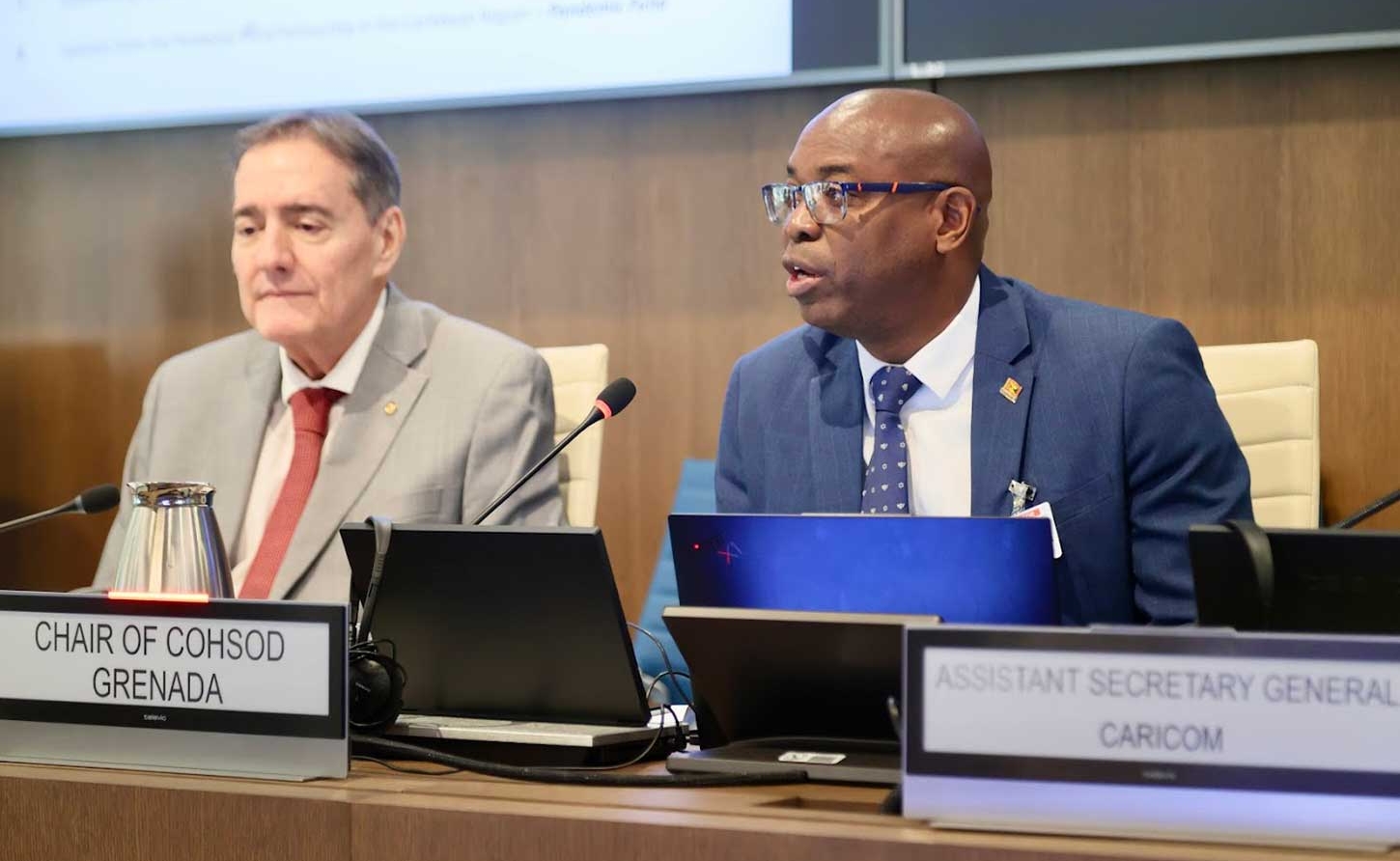CARICOM | Health Ministers Sound Alarm: Climate Crisis and Economic Pressures Threaten Regional Health Security

WASHINGTON, D.C. — September 27, 2025 — Caribbean health leaders issued an urgent call for resilient health systems as the region grapples with mounting climate threats and shrinking fiscal resources, marking a pivotal moment at the landmark 50th Meeting of the Council for Human and Social Development – Health (COHSOD-Health).
"Diseases carry profound financial consequences, resulting in losses due to reduced productivity and rising healthcare costs," declared Hon. Philip Telesford, Grenada's Minister of Health and meeting chair. "Such realities highlight that health is not just a social priority; it is an economic imperative."
The two-day gathering in Washington brought together CARICOM health ministers, permanent secretaries, and chief medical officers alongside regional and international partners to confront what officials described as an increasingly complex web of health challenges threatening Caribbean communities.
Perfect Storm of Pressures
The meeting painted a sobering picture of multiple crises converging on Caribbean health systems. Non-communicable diseases (NCDs) continue their relentless assault on regional productivity and national budgets, while climate change amplifies existing vulnerabilities and creates new health emergencies.
CARICOM Assistant Secretary-General for Human and Social Development, Ms. Alison Drayton, warned that fiscal constraints are undermining hard-won health gains. "We face ongoing challenges, including emerging communicable diseases, premature mortality and morbidity from NCDs, and a shortage of adequately trained healthcare personnel," she stated. "Climate change and rising crime rates add to the complexities."
Drayton emphasized that these health challenges unfold against "significant global conflict and a rapidly evolving geopolitical landscape," with fiscal space for health "rapidly contracting, posing a risk to the gains achieved thus far."
Strategic Partnerships Drive Progress
Despite mounting pressures, Caribbean health leaders showcased significant achievements in regional cooperation and preparedness. The region actively participated in negotiations for the Pandemic Agreement at the 78th World Health Assembly in May 2025, with Minister Telesford delivering the Caribbean's collective statement.
The July 2025 launch of the PAHO-CARICOM Joint Subregional Cooperation Strategy established a comprehensive framework for technical collaboration and capacity building across member states. This partnership builds on the January 2025 CARICOM-HEDPAC Memorandum of Understanding, which supports implementation of strategic health initiatives.
Regional institutions are tackling emerging threats head-on. The Caribbean Public Health Agency (CARPHA), in coordination with the Pan American Health Organization (PAHO), is enhancing laboratory capacity and surveillance through Fleming Fund-supported projects to combat antimicrobial resistance across the region.
Recognizing the intersection of public safety and health, CARICOM has established a Technical Working Group to develop a strategic framework addressing crime and violence as public health issues—a direct response to mandates from regional heads of government.
Building on Legacy Achievements
The meeting celebrated 18 years since the groundbreaking 2007 Port of Spain Declaration, which positioned the Caribbean as a global leader in addressing NCDs. CARICOM collaborated with CARPHA, the Healthy Caribbean Coalition, and PAHO to host a high-level side event during the fourth UN High-Level Meeting on NCDs, showcasing regional progress in health sector advancement.
Dr. Jarbas Barbosa, PAHO Director, briefed participants on matters of regional interest for the upcoming PAHO Directing Council, underscoring the continued importance of Pan-American health cooperation.
The meeting drew participation from across the Caribbean health ecosystem, including representatives from The University of the West Indies (UWI), the Healthy Caribbean Coalition, and international partners including the Pandemic Fund and Global Fund.
Collaborative Leadership for Health Security
As Caribbean nations navigate an increasingly challenging global landscape, the 50th COHSOD-Health meeting reaffirmed the region's commitment to collaborative leadership and proactive responses to emerging threats. The milestone gathering demonstrated that despite fiscal pressures and climate challenges, Caribbean health leaders remain determined to protect and advance regional health security.
"As we mark this 50th meeting, let us reaffirm our shared responsibility to place the health and well-being of our people at the centre of our work," Minister Telesford emphasized, calling for meaningful engagement and strengthened partnerships that have long been "CARICOM's greatest asset."
The meeting's outcomes signal that Caribbean health resilience will depend not just on individual national responses, but on the continued strength of regional cooperation in an era of mounting global uncertainties.
-30-
